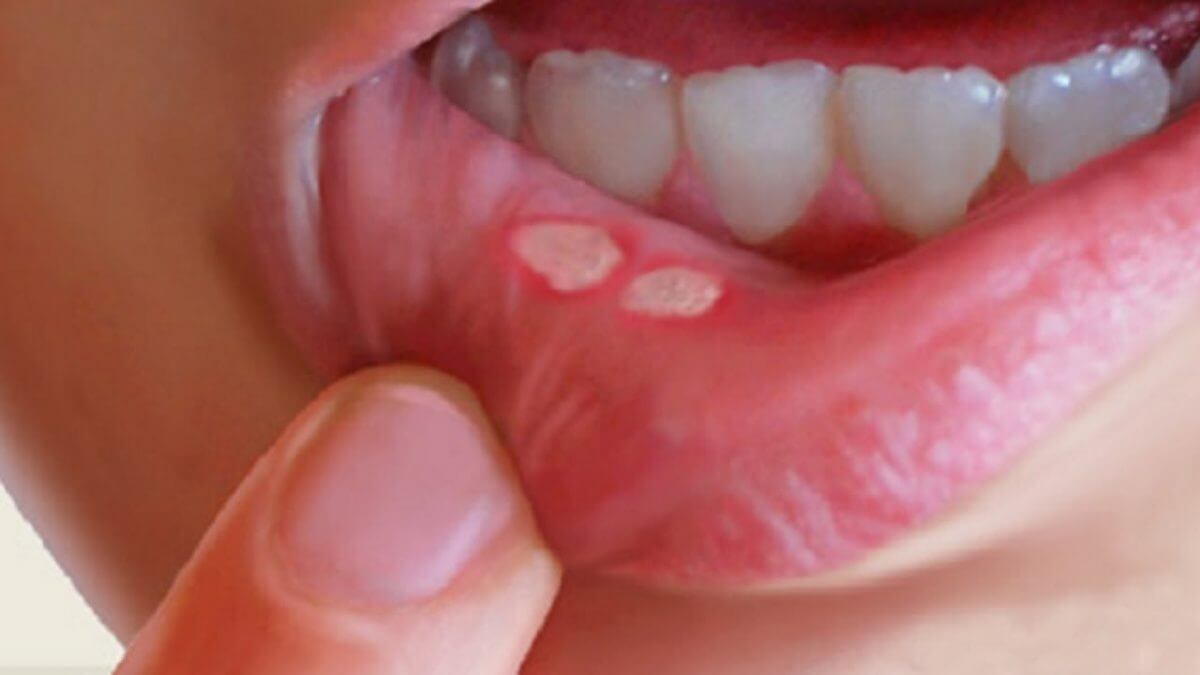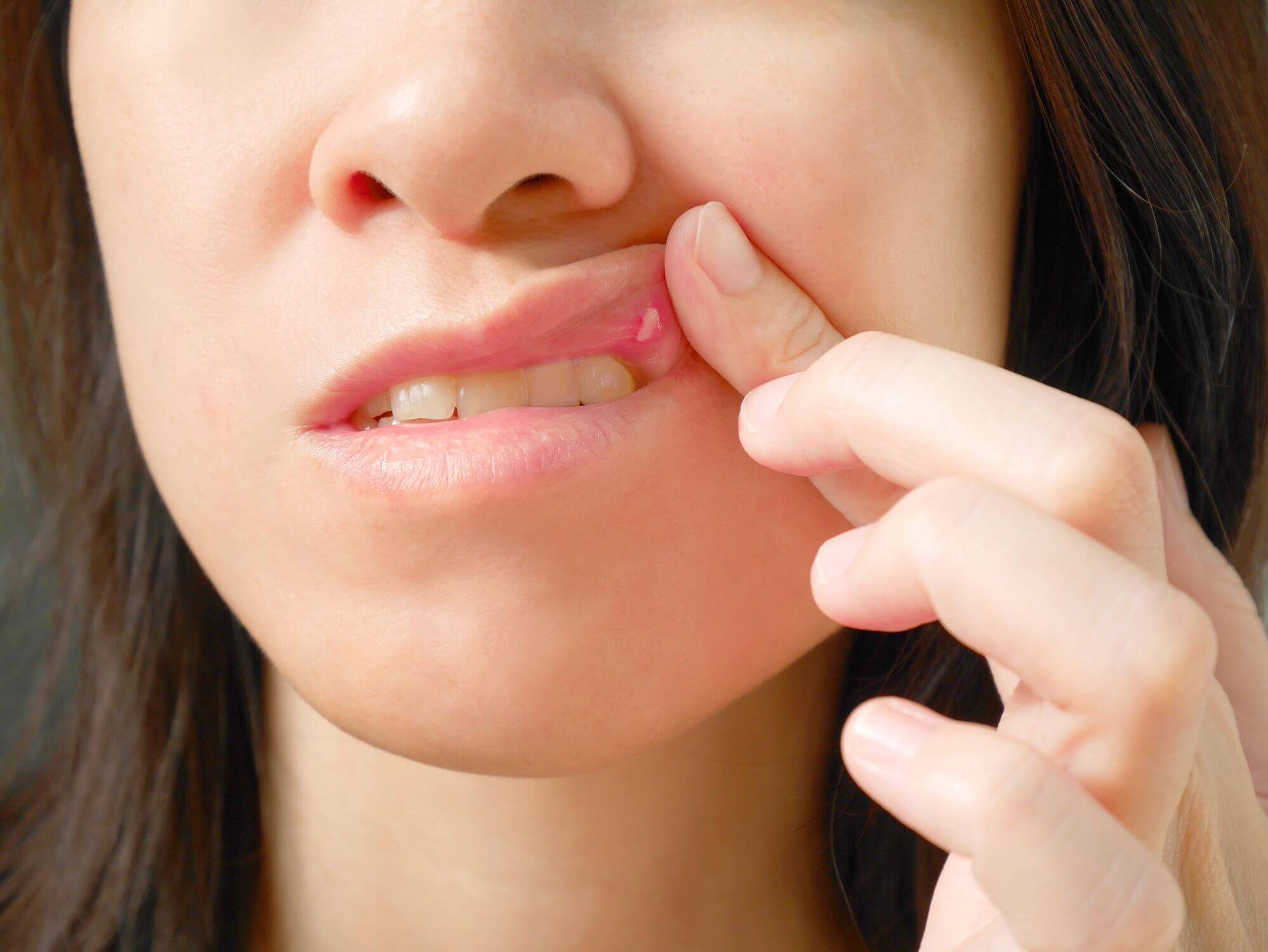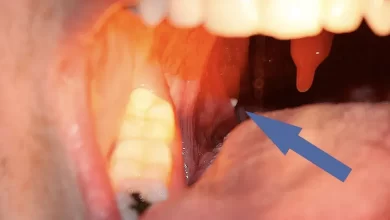Understanding Mouth Ulcers: Causes, Symptoms, and Treatment
Ulcers are an open sore on an external or internal surface of the body, caused by a break in the skin or mucous membrane which fails to heal. They range from small painful sore in mouth to any part of body.
In this article we will discuss about mouth ulcer, its cause and cure.
Mouth ulcers are also popularly called canker sore, forms inside mouth on cheek or lips. They’re usually white, red, yellow or grey in color and are inflamed (red and swollen) around the edge.
Most often mouth ulcers clear up by themselves in 2-3 weeks. But, you need to see dentist if it lasts more then that or occurs more frequently.
What Causes Mouth Ulcers?
Most common cause of small single mouth ulcer is accidentally biting cheek or lips while eating. The cause of recurrent canker sore is unclear but can be pointed to multiple factors including genetic vulnerability and certain triggers.

Some known triggers are stress, anxiety, food habit, hormonal changes and quitting smoking. In some cases mouth ulcer shows health condition such as iron deficiency disease.
Some Medical Conditions Might Cause Mouth Ulcer
- Viral infections including the cold sore virus (herpes simplex).
- Behcet’s disease that causes inflammation of the blood vessels.
- Iron deficiency leads to a reduction in the amount of oxygen reaching your organs and tissues.
- Coeliac disease where a person has an adverse reaction to gluten.
- Reactive arthritis, a condition that causes inflammation in various places in the body, usually as a reaction to an infection.
- Crohn’s disease, a long-term condition that causes inflammation of the lining of the digestive system.
- Lichen planus, a non-infectious, itchy rash that can affect many areas of the body
- Vitamin B12 deficiency causes the body to produce abnormally large red blood cells that cannot function properly.
Symptoms of Mouth Ulcers
Mouth ulcers typically manifest as small, round or oval-shaped sores with a white or yellowish center and a red border. The following symptoms may accompany mouth ulcers.
- Pain or discomfort: Ulcers can cause localized pain or a burning sensation, making it uncomfortable to eat, drink, or speak.
- Swelling: Inflammation and swelling may occur around the ulcer site.
- Irritation: The presence of a mouth ulcer can cause irritation and a feeling of sensitivity in the affected area.
- Difficulty in eating and drinking: Painful mouth ulcers may make it challenging to consume certain foods and beverages, leading to a decrease in appetite.
- Bad breath: If the ulcer becomes infected, it can result in an unpleasant odor.
Treatment of Mouth Ulcers
Mouth ulcers heal themselves in two – three week without causing any lasting problem or scar. If your case is otherwise then you should consult dentist as earliest as possible because recurrent canker sore may lead to some life threatening diseases.

Most mouth ulcers heal within 10-14 days without medical intervention. However, the following measures can help manage the symptoms and promote healing:
- Topical treatments: Over-the-counter oral gels, ointments, or mouth rinses containing ingredients like benzocaine or hydrogen peroxide can provide temporary pain relief and facilitate healing.
- Saltwater rinse: Gargling with warm saltwater (1/2 teaspoon of salt in 8 ounces of water) can help reduce inflammation and promote healing.
- Avoiding irritants: Spicy or acidic foods, tobacco, and alcohol can exacerbate mouth ulcers. Avoiding these irritants can help prevent further discomfort.
- Good oral hygiene: Regular brushing with a soft-bristled toothbrush and using a mild, non-irritating toothpaste can prevent bacterial growth and aid healing.
- Nutritional supplements: In cases where nutritional deficiencies contribute to mouth ulcers, supplements or dietary changes may be recommended by a healthcare professional.
- Medications: In severe cases or when underlying conditions are involved, a healthcare provider may prescribe medications such as corticosteroids, antimicrobial agents, or immunomodulatory drugs.
How to Preventing Mouth Ulcer
Since the exact cause of recurrent mouth ulcer is unknown, there is no conclusive way to prevent but few listed below may definitely help.
- Avoid damaging your mouth brushing or eating brittle or sharp-edged foods.
- Avoid things you think may be triggering your ulcers, such as junk or fast food etc.
- Use yoga and meditation to distress yourself.
- Make sure you maintain good oral hygiene, that includes brushing your teeth at least twice a day.
- Have regular check-ups at your dentist – your dentist can spot sharp teeth or fillings, that could damage your mouth.
- Eat a healthy, fiber and vitamin rich balanced diet.
Conclusion
Mouth ulcers can be painful and disruptive to daily life, but with proper understanding and care, they can be effectively managed and prevented.
By identifying the causes, recognizing the symptoms, and implementing appropriate treatments and preventive measures, individuals can alleviate discomfort and promote healing.
It is advisable to consult a healthcare professional if mouth ulcers persist, worsen, or occur frequently, as they may indicate an underlying health condition requiring specialized attention.

